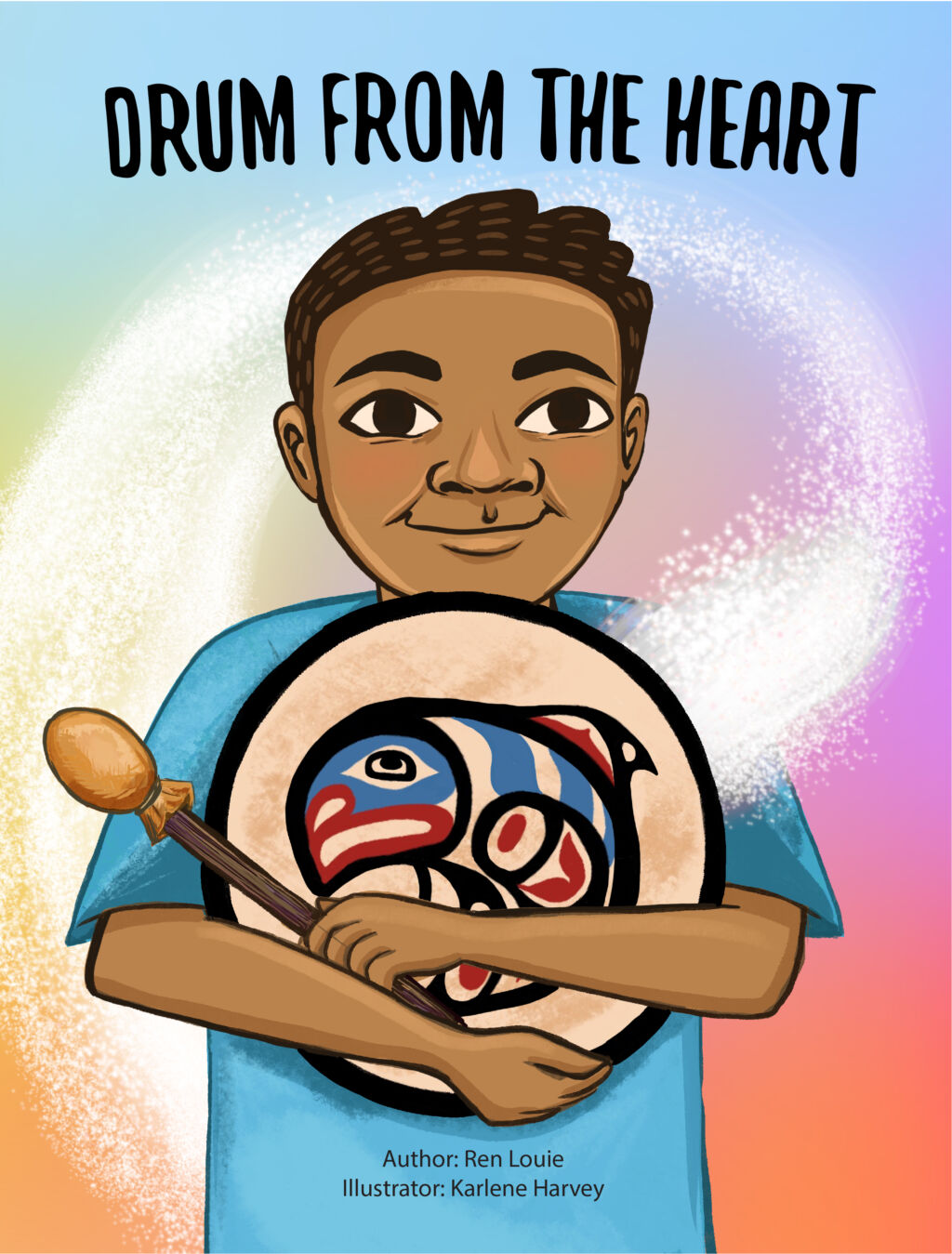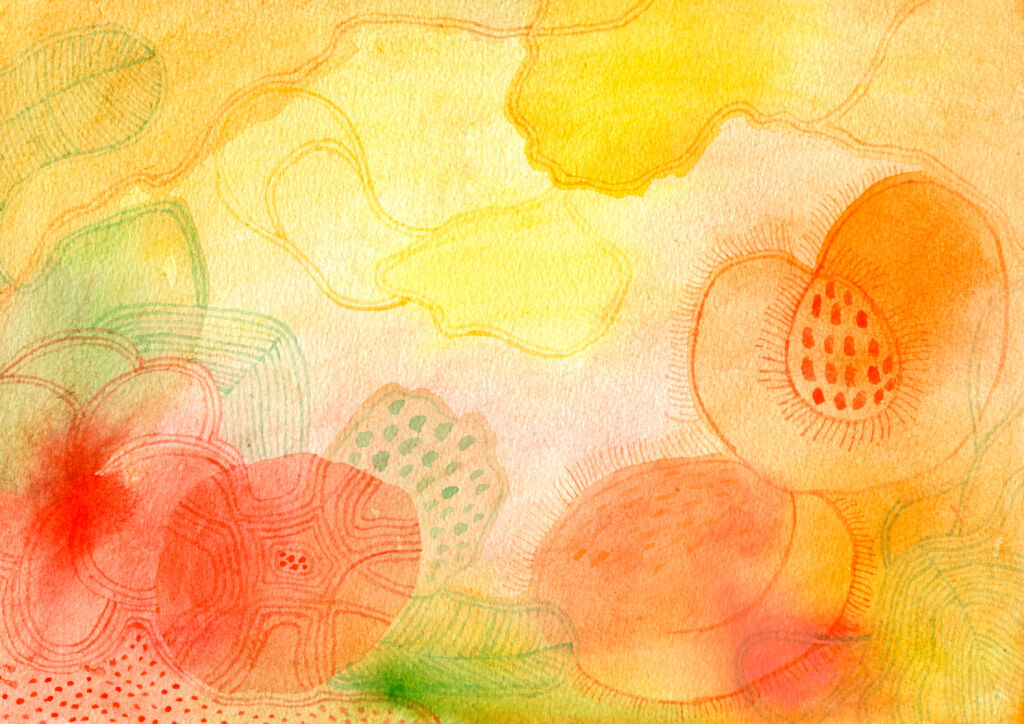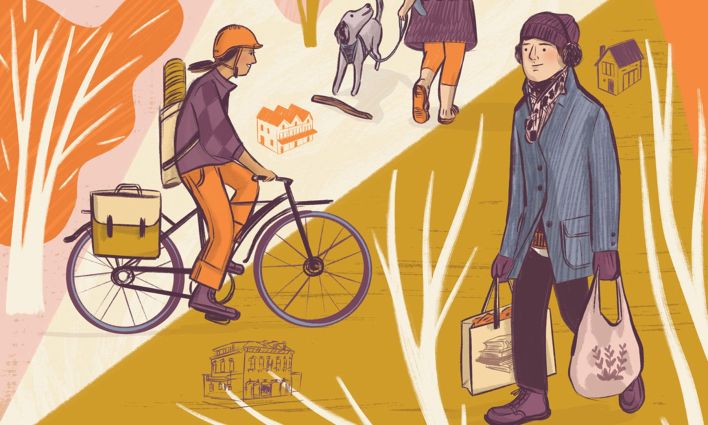The themes explored in this issue of the Monitor could fill libraries. In fact, they do! The following resources explore various aspects of decolonizing the food justice movement. This is a resource list for unlearning things that we have previously accepted as “common knowledge” and decentring white experiences of food. A linked version of this list will be available on the Monitor website to help you connect with each of the suggested resources listed below. Resources are offered in a variety of formats and on multiple platforms to accommodate different learning styles, budgets, and interests. Happy exploring!
Quick reads
Can We Fix America’s Food-Appropriation Problem? Frankie Huang
The Bizarre and Racist History of the BMI, Aubrey Gordon
In Obesity Research, Fatphobia Is Always the X Factor, Virginia Sole-Smith, Scientific American
"Even the experts to which fat people are expected to entrust our health and our very lives exhibit not only implicit bias but explicit personal judgment of the patients they study and treat. More troubling, younger participants show greater bias against fat people... seemingly indicating that the problem of anti-fat bias may persist well into the future." Aubrey Gordon, What We Don't Talk About When We Talk About Fat
Books
About bodies, fatness and diet culture
The Body Is Not An Apology: The Power of Radical Self-Love, Sonya Renee Taylor
“As a Black girl,” writes Ijeoma Oluo in the foreword of Taylor’s book, “I quickly learned from others that there were many things about myself that needed to shrink. Not just my body—my laugh, my ambitions, my imagination, my will, and eventually my anger—everything I was would need to be less.” The Body Is Not An Apology is the culmination of Taylor’s work, and a call to people in racialized, fat, and disabled bodies to take up space, to find self-acceptance, and to not apologize for their existence. It is an exceptional text that every ally and accomplice should read.
What We Don't Talk About When We Talk About Fat, Aubrey Gordon
If the data presented in this issue’s Index piqued your interest, then Gordon’s book is for you. Gordon pushes beyond the discourse of self love to look at how rampant anti-fat views in health care and media have led to discrimination, deleterious health outcomes, and violence. A devoted activist, researcher, and author, Gordon roots her writing in her own experiences of stigma. This book is not to be missed.
Fearing the Black Body: The Racial Origins of Fat Phobia, Sabrina Strings
This deep, intersectional history ties together the origins of anti-Blackness and anti-fatness from the Renaissance to the present day. Through her historical analysis Strings details that, “fat phobia is not based on health concerns. What I found in my research is that in the West, it’s actually rooted in the trans-Atlantic slave trade and Protestantism... By the early 19th century, particularly in the U.S., fatness was deemed evidence of immorality and racial inferiority.”1
Diet and the Disease of Civilization, Adrienne Rose Bitar
Diet and the Disease of Civilization explores the mythos behind popular diets. Studying 17,000 diet books, Bitar found that popular diet trends—Paleo, devotional, Pacific Islander, and Detox—are responses to the socio-political anxieties of North Americans. Bitar examines how powerful diet narratives mourn a loss of purity and purpose in the post-industrial age and how they exoticize and fetishize the Global South. This is a fascinating and important read for problematizing both diet culture and colonization narratives within our food spaces.
Aubrey Gordon has compiled a phenomenal fat reading list and our reading list ending up looking very similar to hers. If you are looking for further reading, check out her list (with special shoutouts to J. Eric Oliver's Fat Politics and Susan Greenhalgh's Fat-Talk Nation, both of which were referenced heavily during the research for the September/October issue of the Monitor).
"[In Jubilee] I have tried to end dependency on the labels "Southern" and "soul," and on the assumptions that limit my ancestors' contributions to mindlessly working the fields where the food was grown, stirring the pot where the food was cooked, and passively serving food in the homes of the master class." Toni Tipton-Martin, Jubilee
Cookbooks & books about food
tawâw: Progressive Indigenous Cuisine, Shane M. Chartrand with Jennifer Cockrall-King.
Chartrand’s journey through the culinary world is one of self discovery and cultural exploration that culminates in an indispensable and visually stunning cookbook. His collection of 75 recipes celebrates progressive Indigenous cuisine while blending in inspiration from Europe and Japan. “Whether you have Indigenous ancestors or not,” writes Chartrand, “everyone in North America should be learning about the First Nations’ cultures that surround them. For my part, I can share recipes that I’ve created or learned, relay stories, and highlight the creativity of my Indigenous world through food.”
Jubilee: Recipes from Two Centuries of African American Cooking, Toni Tipton-Martin.
Tipton-Martin takes readers on a journey through 200 years and more than 150 cookbooks in this historical and culinary tour de force. Jubilee traces the origins of African American cooking, its many inspirations and roots. "The gift that the cookbook authors give us,” explains Tipton-Martin, “is validation to convince the broader community that our story existed and that it mattered." This book is a critical addition to any historian’s librarian, and any cook’s pantry.
Chop Suey Nation, Ann Hui
Written following an 18-day road trip across Canada, the book is Hui’s exploration into how and why Canada ended up with myriad Chinese restaurants in small towns across the country. Anti-Asian racism shut many newly arriving immigrants out of Canada’s job market. Opening restaurants was one of the few options for working available to families when they arrived. Hui’s book blends together her personal narrative with a broader national story as she takes the reader across the country to explore Ginger Beef, Newfoundland Chow Mein, and Chinese Perogies.
“In terms of something that focuses not just on the cuisine, but on all of these different ways that food intersects with culture and immigration and business and commerce, and all of these things that make these restaurants so fascinating, I don’t think anybody else has done it here [in Canada].” - Ann Hui in MonteCristo Magazine2

Kids’ books
Fry Bread, written by Kevin Noble Maillard, illustrated by Juana Martinez-Neal.
Fry Bread is an award winning children’s book for readers ages 5-7. Featuring diverse representations of Indigenous people, it explores how fry bread connects communities across Turtle Island. “When my children were small … I wanted something that was a little more diverse that spoke to their many heritages. This was long before I even thought about becoming an author of children's books. I just wanted them to see themselves in the picture.” - Fry Bread author, Kevin Noble Maillard, speaking with CBC’s Unreserved in May 2020.
Drum From The Heart, written by Ren Louie, illustrated by Karlene Harvey (available for preorder).
While not explicitly about food culture, I wanted to include this forthcoming book in our list, which I’ve already pre-ordered for all the kids in my life. It follows the young protagonist, Ren, who connects to the culture and the traditional songs of his Nuu-chah-nulth Nation after he is gifted a drum by his mother. If you’ve ever received a thank you card from the CCPA, the artwork on the front was created by Karlene Harvey, who has also shared her artwork with us to use on National Indigenous Peoples Day. Teachers can also pre-order lesson plans from Medicine Wheel Education to go with the book, appropriate for kids ages 7 and up.
Salma the Syrian Chef, written by Danny Ramadan, illustrated by Anna Bron.
Salma and her mother have moved to Vancouver from Syria, leaving not only their home, but Salma’s father as well. As Salma watches her mother struggling, she hatches a plan to cheer her up by cooking a traditional meal. This book, written for children ages 4-7, explores the experience of Canadian newcomers and shares the recipe for a traditional Syrian dish, foul shami.
My Day with Gong Gong, written by Sennah Yee, illustrated by Elaine Chen.
May’s mother drops her off to spend the day with her Gong Gong (grandfather), but May worries that their language barrier will cause problems. What follows is a journey through Chinatown for the two of them. Of her similarities to the young protagonist, Senneh Yee writes “May and I both learn from our family about the different ways we can love. I've been thinking about this more and more as I get older and find new ways to show, as well as accept love—whether through listening, helping with an errand, thoughtful gifts, hugs, or of course, eating yummy food together. I hope this book can show readers how love can take on endless forms!”
Podcasts and Webinars
The Sporkful: This podcast digs into food culture, history, and the people involved. Winner of the James Beard and Webby Award for Best Food Podcast. Recommended episodes: Ayesha Curry on the Importance of Saying No; Notes From A Young Black Chef Pt 1 and 2; and a Reckoning at Bon Appetit.
Maintenance Phase: Hosted by Aubrey Gordon and Michael Hobbs, this bi-weekly podcast debunks the junk science behind health fads, wellness scams and nonsensical nutrition advice. Recommended episodes: The Body Mass Index; Oprah Winfrey & The Wagon of Fat; Weight Watchers.
Telling Our Twisted Histories: This CBC podcast aims to reclaim Indigenous histories that have been twisted by centuries of colonization. Each episode, host Kaniehti:io Horn takes listeners on a journey to decolonize their thinking around one concept. Recommended episodes: Bannock, Discovery, Reconciliation.
Webinar: Decolonizing the Land and Food System: Indigenous Resilience in Times of Crisis, UBC Farm. A webinar recorded June 11, 2021 features presenters Dawn Morrison, Wilson Mendes, Alannah Young Leon and Angela McIntyre. It is part of The Building Resilient Food Systems During COVID-19 and Beyond series.




